Gordon Briggs
ICRA Roboethics Challenge 2023: Intelligent Disobedience in an Elderly Care Home
Nov 15, 2023
Abstract:With the projected surge in the elderly population, service robots offer a promising avenue to enhance their well-being in elderly care homes. Such robots will encounter complex scenarios which will require them to perform decisions with ethical consequences. In this report, we propose to leverage the Intelligent Disobedience framework in order to give the robot the ability to perform a deliberation process over decisions with potential ethical implications. We list the issues that this framework can assist with, define it formally in the context of the specific elderly care home scenario, and delineate the requirements for implementing an intelligently disobeying robot. We conclude this report with some critical analysis and suggestions for future work.
Decision-Theoretic Question Generation for Situated Reference Resolution: An Empirical Study and Computational Model
Oct 12, 2021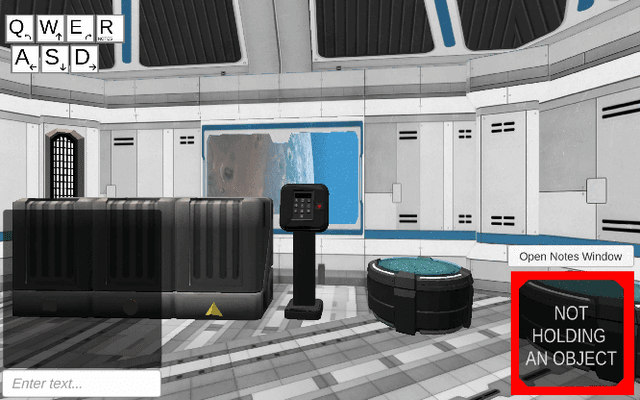

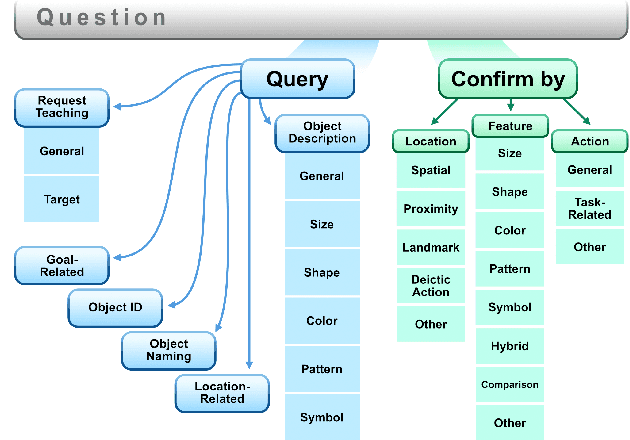
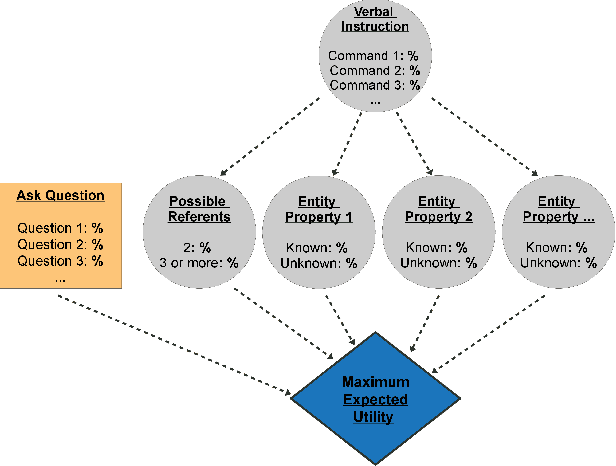
Abstract:Dialogue agents that interact with humans in situated environments need to manage referential ambiguity across multiple modalities and ask for help as needed. However, it is not clear what kinds of questions such agents should ask nor how the answers to such questions can be used to resolve ambiguity. To address this, we analyzed dialogue data from an interactive study in which participants controlled a virtual robot tasked with organizing a set of tools while engaging in dialogue with a live, remote experimenter. We discovered a number of novel results, including the distribution of question types used to resolve ambiguity and the influence of dialogue-level factors on the reference resolution process. Based on these empirical findings we: (1) developed a computational model for clarification requests using a decision network with an entropy-based utility assignment method that operates across modalities, (2) evaluated the model, showing that it outperforms a slot-filling baseline in environments of varying ambiguity, and (3) interpreted the results to offer insight into the ways that agents can ask questions to facilitate situated reference resolution.
How Should Agents Ask Questions For Situated Learning? An Annotated Dialogue Corpus
Jun 11, 2021
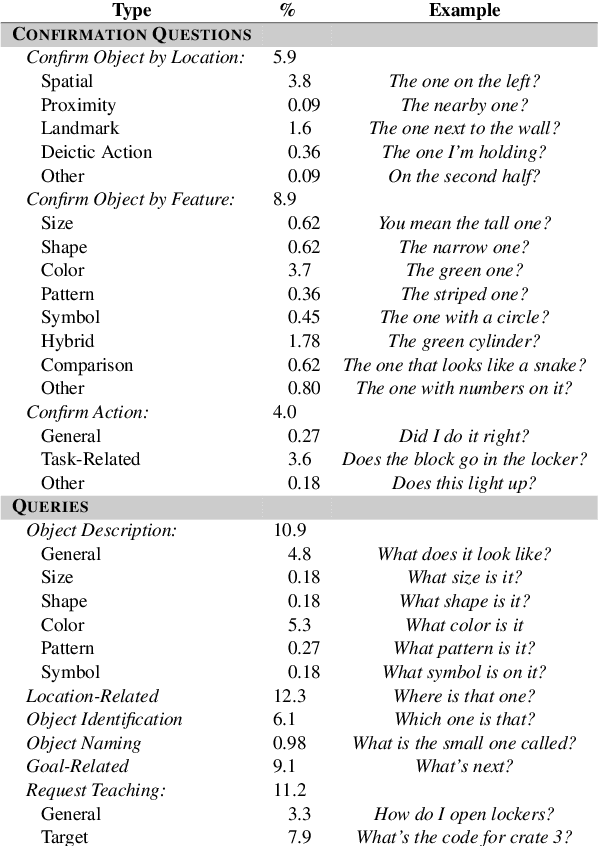

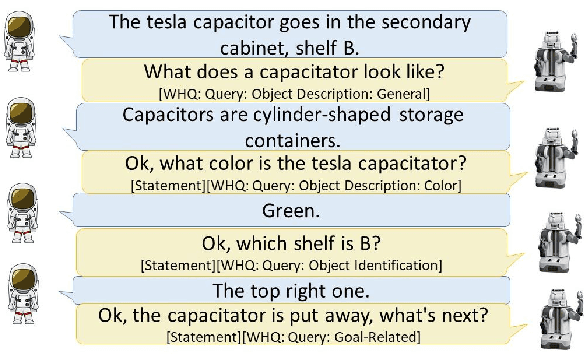
Abstract:Intelligent agents that are confronted with novel concepts in situated environments will need to ask their human teammates questions to learn about the physical world. To better understand this problem, we need data about asking questions in situated task-based interactions. To this end, we present the Human-Robot Dialogue Learning (HuRDL) Corpus - a novel dialogue corpus collected in an online interactive virtual environment in which human participants play the role of a robot performing a collaborative tool-organization task. We describe the corpus data and a corresponding annotation scheme to offer insight into the form and content of questions that humans ask to facilitate learning in a situated environment. We provide the corpus as an empirically-grounded resource for improving question generation in situated intelligent agents.
 Add to Chrome
Add to Chrome Add to Firefox
Add to Firefox Add to Edge
Add to Edge